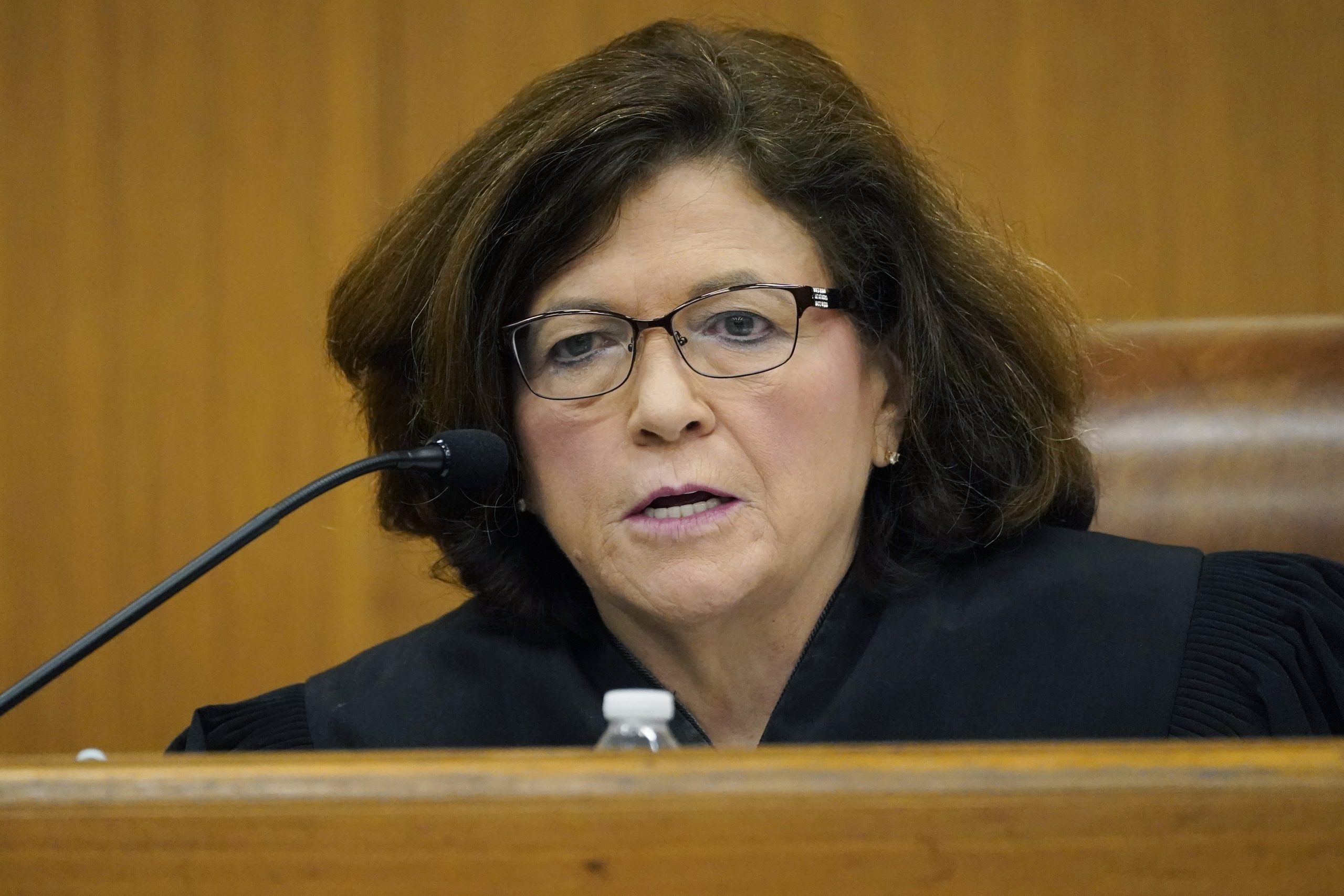Mississippi Today
Legal fight over abortion continues in Mississippi

Legal fight over abortion continues in Mississippi
Recent legal wrangling over a 1998 Mississippi Supreme Court ruling saying the state Constitution provides a right to an abortion highlights the uncertainty of Mississippi's abortion ban.
On Friday the Mississippi Center for Justice and Democracy Forward filed a motion saying an anti-abortion lawsuit filed by a group conservative doctors should be thrown out.
The motion said the American Association of Pro-Life Obstetricians and Gynecologists does not have standing to bring the case. The case was filed in November in Hinds County Chancery Court.
In the case, the Mississippi Center for Public Policy, on behalf of the doctors, is asking the Mississippi Supreme Court to overturn its 1998 ruling in Pro Choice Mississippi v. Fordice that said the state Constitution provides Mississippians a right to an abortion.
Rob McDuff, an attorney with the Mississippi Center for Justice, said the group filing the case is an out-of-state organization that is “not suffering any injuries from the existence of this (Pro Mississippi v. Fordice) precedence. They don't have a case that belongs in court.”
There are no abortion clinics in Mississippi and most view Mississippi as a state where most abortions are banned. But in reality, the state has been in a strange legal limbo since June when the U.S. Supreme Court in a case brought by Mississippi overturned the national right to an abortion guaranteed by Roe v. Wade.
Mississippi already had laws in place banning most abortions in the state when Roe was overturned. But what state leaders did not account for was the 1998 state ruling saying the Mississippi Constitution granted the right to an abortion.
The Mississippi Center for Justice, arguing on behalf of its client, Jackson Women's Health Organization, then the only abortion clinic in the state, contended that abortion should continue to be legal unless the 1998 state Supreme Court ruling was overturned by a new ruling from Mississippi's highest court.
In an unusual ruling in early July, Chancery Judge Debbra Halford of Meadville, appointed to hear the case by the state Supreme Court, refused to block the laws banning abortions. One of her primary reasons for not blocking the laws is because she predicted the current state Supreme Court would reverse the ruling providing a right to abortion in the Mississippi Constitution.
The Mississippi Center for Justice appealed to the Supreme Court. But the state's highest court refused to take up the case on an expedited schedule. Amid the uncertainty, Jackson Women's Health Organization closed and the Mississippi Center for Justice dropped the appeal.
But in November the conservative leaning Mississippi Center for Public Policy filed a lawsuit to renew the case, claiming that because of the uncertainty caused by the existence of the 1998 Supreme Court ruling doctors who chose not to perform abortions could face punishment.
In Friday's motion the Mississippi Center for Justice and Democracy Forward, both of which support abortion rights, said doctors face no penalties for not performing abortions in Mississippi and that the case should be dismissed.
The state already has intervened in the state. Mississippi Attorney General Lynn Fitch argued that based on the fact that the chancery judge did not uphold the lawsuit by Jackson Women's Health Organization that most abortions in the state are banned and the Pro Choice Mississippi v. Fordice ruling no longer is the law.
This article first appeared on Mississippi Today and is republished here under a Creative Commons license.
Mississippi Today
On this day in 1892


April 22, 1892

Fiery civil rights pioneer Vernon Johns was born in Darlington Heights, Virginia, in Prince Edward County. He taught himself German and other languages so well that when the dean of Oberlin College handed him a book of German scripture, Johns easily passed, won admission and became the top student at Oberlin College.
In 1948, the Dexter Avenue Baptist Church in Montgomery, Alabama, hired Johns, who mesmerized the crowd with his photographic memory of scripture. But he butted heads with the middle-class congregation when he chastised members for disliking muddy manual labor, selling cabbages, hams and watermelons on the streets near the state capitol.
He pressed civil rights issues, helping Black rape victims bring their cases to authorities, ordering a meal from a white restaurant and refusing to sit in the back of a bus. No one in the congregation followed his lead, and turmoil continued to rise between the pastor and his parishioners.
In May 1953, he resigned, returning to his family farm. His successor? A young preacher named Martin Luther King Jr.
James Earl Jones portrayed the eccentric pastor in the 1994 TV film, “Road to Freedom: The Vernon Johns Story,” and historian Taylor Branch profiled Johns in his Pulitzer-winning “Parting the Waters; America in the King Years 1954-63.”
This article first appeared on Mississippi Today and is republished here under a Creative Commons license.
Did you miss our previous article…
https://www.biloxinewsevents.com/?p=351711
Mississippi Today
Podcast: Rep. Sam Creekmore says Legislature is making progress on public health, mental health reforms

House Public Health Chairman Sam Creekmore, R-New Albany, tells Mississippi Today's Geoff Pender and Taylor Vance he's hopeful he and other negotiators can strike a deal on Medicaid expansion to address dire issues in the unhealthiest state.
This article first appeared on Mississippi Today and is republished here under a Creative Commons license.
Did you miss our previous article…
https://www.biloxinewsevents.com/?p=351583
Mississippi Today
On this day in 1966
April 21, 1966

Milton Olive III became the first Black soldier awarded the Congressional Medal of Honor in the Vietnam War.
Olive had known tragedy in his life, his mother dying when he was only four hours old. He spent his early youth on Chicago's South Side and then moved to Lexington, Mississippi, where he stayed with his grandparents.
In 1964, he attended one of the Mississippi Freedom Schools, and he joined the work in Freedom Summer, registering Black voters. Concerned that he might be killed, his grandmother sent him back to Chicago, where he joined the military on his 18th birthday.
“You said I was crazy for joining up,” he wrote. “Well, I've gone you one better. I'm now an official U.S. Army Paratrooper.”
He joined the U.S. Army's 173rd Airborne Brigade and became known as “Preacher” for his quiet demeanor and his tendency to avoid cursing. On Oct. 22, 1965, helicopters dropped Olive and the 3rd Platoon of Company B into a dense jungle near Saigon. They returned fire on the Viet Cong, who retreated. As the soldiers pursued the enemy, a grenade was thrown into the middle of them. Olive grabbed the grenade and fell on it, absorbing the blast with his body.
“It was the most incredible display of selfless bravery I ever witnessed,” the platoon commander said.
Olive saved his fellow soldier's lives. Then-President Lyndon B. Johnson presented the medal to his father and stepmother, and he has since been honored with a park and a junior college named for him.
This article first appeared on Mississippi Today and is republished here under a Creative Commons license.
-
SuperTalk FM6 days ago
Chance of parole denied for man who killed 3 Choctaw Indian tribal members
-
SuperTalk FM5 days ago
2 arrested after missing man’s body found on side of Mississippi highway
-
Mississippi News4 days ago
What this means for local schools
-
228Sports2 days ago
From Heartbreak to Hoop Dreams: Pascagoula Panthers Springboard from Semifinal Setback to College Courts
-
Kaiser Health News6 days ago
To Stop Fentanyl Deaths in Philadelphia, Knocking on Doors and Handing Out Overdose Kits
-
Mississippi News2 days ago
2 dead, 6 hurt in shooting at Memphis, Tennessee block party: police
-
Mississippi News4 days ago
Willis Miller sentenced to 45 years in prison, mandatory
-
Mississippi News1 day ago
Forest landowners can apply for federal emergency loans



































